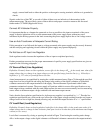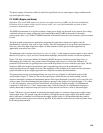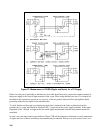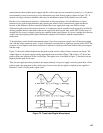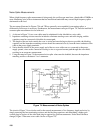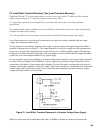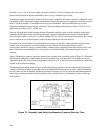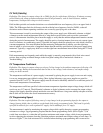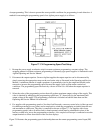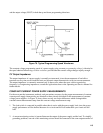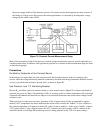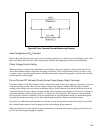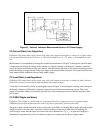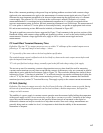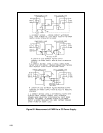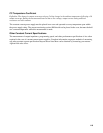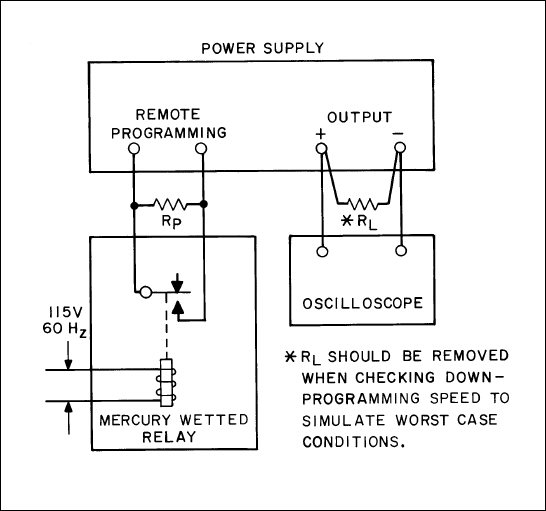
112
downprogramming. This is done to present the worst possible conditions for programming in each direction. A
method for measuring the programming speed of an Agilent power supply is as follows:
Figure 77. CV Programming Speed Test Setup
1. Restrap the power supply rear barrier strip for remote resistance programming, constant voltage. The
strapping pattern for remote resistance programming of laboratory-type power supplies is illustrated in each
Agilent Operating and Service Manual.
2. Disconnect the output capacitor. On most Agilent supplies the output capacitor can be disconnected by
simply removing the appropriate straps on the rear barrier strip as illustrated in the Operating and Service
Manual. A minimum amount of output capacitance is permanently wired to the output and should not be
removed to increase the programming speed, because the supply could oscillate under certain load
conditions. The programming speed increases by a factor of from 10 to 100 when the output capacitor is
removed.
3. Select the value of the programming resistor that will produce maximum output voltage of the supply. This
value is obtained by multiplying the programming coefficient ("X" ohms/volts) by the maximum rated
output voltage of the supply. The programming coefficient is included on both the data sheet and the
Operating and Service Manual for each model.
4. For supplies with programming speeds of less than 8 milliseconds, a mercury-wetted relay (of the type used
for checking transient recovery time) can be employed to switch the programming resistance between zero
and maximum at a 60Hz rate. The relay is connected as shown on Figure 77. For supplies with slower
programming speeds (above 8 milliseconds) a hand-operated switch must be substituted in place of the
mercury-wetted relay across the programming resistance. A dc coupled oscilloscope is connected across the
output terminals to allow observation of the one-shot displays.
Figure 78 illustrates the programming speed relationship between the remote programming control input (RP)



